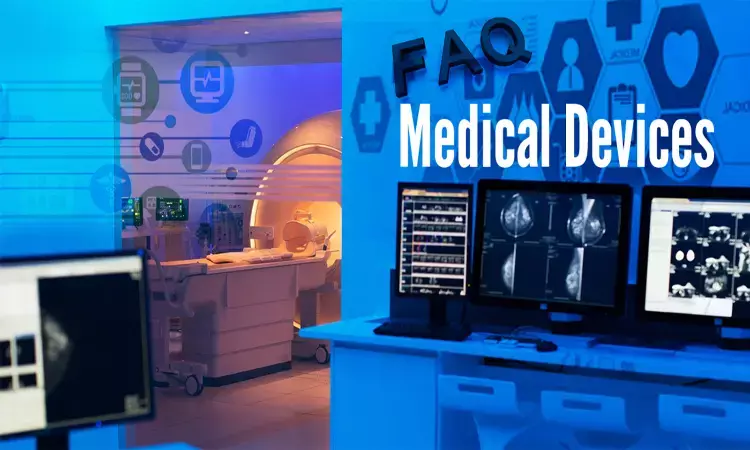- Home
- Medical news & Guidelines
- Anesthesiology
- Cardiology and CTVS
- Critical Care
- Dentistry
- Dermatology
- Diabetes and Endocrinology
- ENT
- Gastroenterology
- Medicine
- Nephrology
- Neurology
- Obstretics-Gynaecology
- Oncology
- Ophthalmology
- Orthopaedics
- Pediatrics-Neonatology
- Psychiatry
- Pulmonology
- Radiology
- Surgery
- Urology
- Laboratory Medicine
- Diet
- Nursing
- Paramedical
- Physiotherapy
- Health news
- Fact Check
- Bone Health Fact Check
- Brain Health Fact Check
- Cancer Related Fact Check
- Child Care Fact Check
- Dental and oral health fact check
- Diabetes and metabolic health fact check
- Diet and Nutrition Fact Check
- Eye and ENT Care Fact Check
- Fitness fact check
- Gut health fact check
- Heart health fact check
- Kidney health fact check
- Medical education fact check
- Men's health fact check
- Respiratory fact check
- Skin and hair care fact check
- Vaccine and Immunization fact check
- Women's health fact check
- AYUSH
- State News
- Andaman and Nicobar Islands
- Andhra Pradesh
- Arunachal Pradesh
- Assam
- Bihar
- Chandigarh
- Chattisgarh
- Dadra and Nagar Haveli
- Daman and Diu
- Delhi
- Goa
- Gujarat
- Haryana
- Himachal Pradesh
- Jammu & Kashmir
- Jharkhand
- Karnataka
- Kerala
- Ladakh
- Lakshadweep
- Madhya Pradesh
- Maharashtra
- Manipur
- Meghalaya
- Mizoram
- Nagaland
- Odisha
- Puducherry
- Punjab
- Rajasthan
- Sikkim
- Tamil Nadu
- Telangana
- Tripura
- Uttar Pradesh
- Uttrakhand
- West Bengal
- Medical Education
- Industry
Govt do away with mandatory submission of TSE, BSE certificates by medical device makers

New Delhi: Through a recent Gazette notification, the Health Ministry apprised the latest amendment in the Medical Devices Rules, 2017 to do away with the mandatory submission of Transmissible Spongiform Encephalopathies (TSEs) or Bovine Spongiform Encephalopathy (BSE) certificates by manufacturers of medical devices using materials of biological origin.
Various medical devices across the globe contains animal tissues and their derivatives. Such products can be a vital component of devices such as bovine or porcine heart valves and bone substitutes for use in dental or orthopaedic applications. They are also widely utilised as product coating or impregnation during the manufacturing process.
BSE, commonly known as 'mad cow disease' and TSEs known as prion diseases are a family of illnesses of humans and animals that can be transmitted through contaminated medical equipment and nervous tissue. Thus, guidelines for biological safety in the fourth schedule of the Medical Devices (MD) Rules of 2017 sought mandatory submission of TSE, BSE certificates by medical device makers.
The Fourth Schedule, in Part III, in Appendix II, in paragraph 7.4 talks about Biological safety that mentiones;
"(i) The dossier should contain a list of all materials of animal or human origin used in the device. For these materials, detailed information should be provided concerning the selection of sources or donors; the harvesting, processing, preservation, testing and handling of tissues, cells and substances of such origin should also be provided. Process validation results should be included to substantiate that manufacturing procedures are in place to minimize biological risks, in particular, with regard to viruses and other transmissible agents. Transmissible Spongiform Encephalopathies (TSE) or Bovine Spongiform Encephalopathy (BSE) Certificates should also be submitted."
However, with the latest amendment, manufacturers of medical devices using materials of biological origin will no more have to worry about the mandatory submission of transmissible spongiform encephalopathies (TSEs) or bovine spongiform encephalopathy (BSE) certificates.
In March, 2022, the Ministry had invited objections and suggestions from the stakeholders on the draft rules that suggested to do away with the compulsory requirement of TSE and BSE certificates. Copies of the said gazette were made available to the public on 30th March, 2022;
Subsequently, after considering the objections and suggestions received from the public the draft rules have been considered by the Central Government.
Now, therefore, in exercise of the powers conferred by sections 12 and 33 of the Drugs and Cosmetics Act, 1940 (23 of 1940), the Central Government, after consultation with Drugs Technical Advisory Board hereby makes the following rules further to amend the Medical Devices Rules, 2017, namely:―
1. (1) These rules may be called the Medical Devices (Fourth Amendment) Rules, 2022.
(2) These rules shall come into force on the date of their publication in the Official Gazette.
2. In the Medical Devices Rules, 2017, in Fourth Schedule, in Part III, in Appendix II, in paragraph 7.4 relating to biological safety, in clause no. (i), the following proviso shall be inserted, namely:—
"Provided that the requirement of Transmissible Spongiform Encephalopathies (TSEs) or Bovine Spongiform Encephalopathy (BSE) Certificates is not necessary, if the source is from an animal species from a country of origin recognised as having negligible Bovine Spongiform Encephalopathy risk in accordance with the recommendations of the World Organisation for Animal Health."
To view the official Gazette, click on the link below:
Farhat Nasim joined Medical Dialogue an Editor for the Business Section in 2017. She Covers all the updates in the Pharmaceutical field, Policy, Insurance, Business Healthcare, Medical News, Health News, Pharma News, Healthcare and Investment. She is a graduate of St.Xavier’s College Ranchi. She can be contacted at editorial@medicaldialogues.in Contact no. 011-43720751


